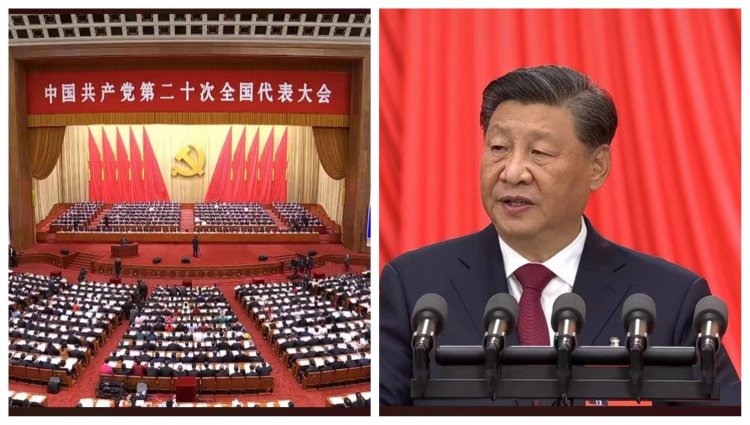India - China: Xi Responsible for Gradual Deterioration of Relations
STORIES, ANALYSES, EXPERT VIEWS

Ahead of his visit to the US, PM Modi, in an interview to the Wall Street Journal, said India does not have a neutral stand on disputes between countries and has always been on the side of peace. He said peace and tranquillity at the border was essential for India to have normal ties with China, emphasising that India was committed and prepared to protect its sovereignty.
"All countries should respect international law and the sovereignty of countries. Disputes should be resolved with diplomacy and dialogue, not war... Some people say that we are neutral. But we are not neutral. We are on the side of peace... The world has full confidence that India's topmost priority is peace," Modi said
China nø longer the focus of foreign policy
The statement has relevance as experts say the visit of the Prime Minister to the United States of America may well signal the end of India’s policy of non-alignment. It is therefore, important for other great powers, especially China, to take stock of the situation and ponder over how India reached where it has. When PM Modi took over in 2014, China was the prime focus of his foreign policy vision; Beijing after all was the superpower in India’s backyard.
Between 2014 and 2020, he met the Chinese President at least 18 times, and visited China on five occasions; President Xi Jinping came to India thrice. At each of these meetings, the Indian effort was to ensure peace and tranquility on its borders with China and to find solutions to problems that had dogged ties for decades. While India maintained warm ties with the Western bloc, including with America, the first six years of Modi’s stewardship accorded primacy to ties with Beijing, despite Chinese pin-pricks over Arunachal Pradesh, the brushing aside of Indian concerns about Pakistan and terrorism, and even domestic criticism the Prime Minister faced that he was trusting the Chinese far too much. The futility of Indian efforts over six years became clear in June 2020 when the Peoples’ Liberation Army attacked Indian soldiers in Ladakh.
India forced to seek security arrangements: Xi to blame
Ties between the two countries have deteriorated since, and India has found itself forced to seek security arrangements that encompass the threat from Beijing. In short, writes The Statesman, “if India has moved away from a position of relative neutrality to one where its ties with Washington will dominate its foreign policy discourse, the person most responsible must be President Xi. Indeed, history may well record the events at Galwan and the military stand-offs that followed as defining moments for Asia, and possibly as among Mr. Xi’s greatest blunders. In the three years since Galwan, India has shed its somewhat fitful initial participation in the Quadrilateral Security Dialogue with the United States, Australia and Japan and emerged as a robust participant in the defence of the Pacific.
"This region quite frankly was not on its strategic agenda even a few years ago; the Indian Ocean was its theatre of concern and planners seldom looked beyond the Straits of Malacca. It has aggressively pursued self-reliance in areas where it was once dependent on China. And as Russia has joined hands with China to create a power bloc, India has started scaling back on its military acquisitions from Moscow and opened its order book to American and European suppliers.
“The Prime Minister’s current visit to America is expected to enhance both the scale and the pace of such acquisitions. But it will do more, for with the Americans attaching greater importance to this visit than they have to past travels by Indian leaders, and with New Delhi showing signs of reveling at the attention, it seems clear that a major, perhaps tectonic, change in ties is on the anvil. If such an enhancement adds to the strategic concerns of China and Russia, both countries should know who is most to blame.”
Blinken-Xi meet in China: Biden says X is dictator
The future of relations however, cannot be predicted. Antony Blinken visited Beijing last week, the first visit by a U.S. Secretary of State since 2018.
Although there were no breakthroughs, The Hindu writes “the very fact that Xi met with the visiting U.S. diplomat was a clear sign of progress given the cancellation of Mr. Blinken’s visit in February and the rancour that followed the shooting down of the Chinese ‘spy balloon’ over the U.S…..
“That Beijing and Washington are appearing to agree on the need for stability should be welcomed, including by India. While shared concerns about China may be a binding factor, the India-U.S. relationship today has acquired a deeper and broader scope…..”
President Biden however, put water on the move when he declared the very next day after Blinken’s visit, that Xi was a dictator.
















